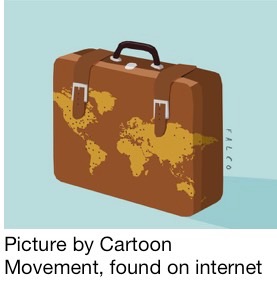Sign up for FlowVella
Sign up with FacebookAlready have an account? Sign in now
By registering you are agreeing to our
Terms of Service
Loading Flow

Problems; Migration
As mentioned before the existence of different ethnic groups with their own cultures is a condition of every state, even if its origin goes back for centuries. Most of the time patterns of co-existence have been developed. One of the major changes in Western countries in the sixties of the last century was the invitation to foreigners to come to work (the guest labourers). They were expected to return after a couple of years and hence, could do with modest housing and did not need to learn the local language. However, they did not return and opted for family reunion in the host country; family reunion is now a major reason for migration. This development changed the rules of the game.
In the last few decades three other development reinforced one another in the sense of the number of foreigners arriving in mostly Western countries: asylum seekers (refugees in the strict sense), people fleeing from war and disaster and people who see an opportunity to make more money. In addition more and more people migrate as a result of climate change, as well as the earlier mentioned family reunion.
The first category (asylum seekers) is relatively small in numbers and consists of those who have their fundamental human rights violated (e.g. freedom of expression, religion or sexual orientation). The second group (fleeing war and disasters) wants to return in the end, even if that might take a few years. The third group (‘economic refugees’) is the major problem because they are not entitled to employment in the host country. They may well become illegal inhabitants, hard to track or to send back to the country of origin.
This document will not discuss the ins and outs of the permission or not of residing in a given country. Next to a series of international agreements, states have their own rules and regulations. Furthermore, implementation practices differ, possibly within one and the same state. In addition, countries of origin differ in the degree of preventing ‘economic refugees’ to take the road and in the willingness to welcome back their nationals (whatever international law says). These and other factors influence the migration flows (from prevention to stimulation).
